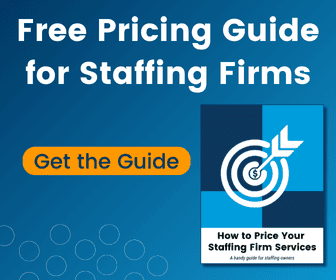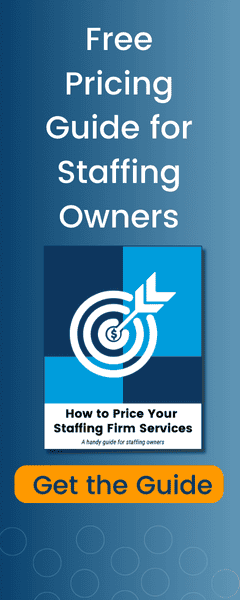Top Travel Nursing Challenges and How Staffing Firms Can Help

Last time updated: November 6, 2025

The 2020 pandemic brought unprecedented demand for healthcare workers, driving explosive growth in the travel nursing market. Facilities scrambled to fill critical gaps, wages soared to record highs, and travel nurses became essential frontline responders.
In the post-COVID era, however, the market is undergoing a significant correction—wages are returning to pre-pandemic levels, and the entire travel nursing landscape faces new headwinds.Navigating current challenges in travel nursing requires understanding not only post-COVID travel nurse pay trends and tax complications for travel nurses, but also the evolving roles of healthcare staffing agencies. These firms are the bridge helping both nurses and facilities adapt in this shifting environment, offering stability, support, and solutions to complex problems.
Travel Nurse Pay Issues
During COVID-19, demand for travel nursing surged due to unprecedented care needs, government emergency contracts, and fierce bill rate competition among agencies. This led to doubled—or even tripled—pay rates. However, as the immediate crisis waned, demand dropped and hospitals initiated cost controls, causing pay rates to normalize.
There’s now ongoing debate around proposals to cap travel nurse wages, as some argue high rates destabilize healthcare finances, while advocacy groups warn it could worsen nursing shortages.
Other emerging trends in the pay landscape:
- Pay transparency between agencies remains inconsistent—Nurses may see varying rates for identical assignments.
- Facilities now offer completion bonuses or retention incentives instead of higher base pay.
- Housing stipends play a bigger role in overall compensation, with increasing focus on competitive housing allowances.
Travel Nurse Tax Issues
Travel nurses continue to face complex tax regulations, especially when working across multiple states with differing tax laws. Each new assignment can trigger unique requirements, and mishandling taxes can result in costly errors.
Multi-State Taxation Challenges
Travel nurses typically file non-resident tax returns for each state where they work, while also managing residency status in their “tax home.” The IRS has strict rules around tax homes and how stipends are treated.
Common mistakes made by travel nurses include:
- Not keeping documentation of housing or rent payments.
- Misunderstanding the difference between taxable wages and tax-free stipends.
- Assuming their agency handles all tax complexity (agencies rarely are responsible for personal tax compliance).
Determining a Tax Home
To determine their tax home, travel nurses have two options. They can either establish a tax home in the area where they have worked the most, or they can return home for at least 30 days out of the year and provide evidence of paying expenses such as mortgage, rent, and utilities. Properly establishing a tax home is essential for travel nurses to ensure compliance with tax laws and maximize their tax benefits.
There are two common ways travel nurses establish their tax home:
- Maintain ties and expenses in a primary residence (rent receipts, utility bills, mortgage)
- Return to a permanent residence for at least 30 days per year
Properly establishing a tax home is vital—if not done correctly, all stipends received may become taxable income, increasing tax liability and reducing take-home pay.
Meeting Stipend Rules
Another tax-related challenge for travel nurses is the treatment of stipends. Unlike staff nurses, travel nurses receive tax-free stipends to cover expenses such as travel and housing. However, to qualify for tax-free treatment, travel nurses must adhere to strict IRS rules. It’s important for travel nurses to consult with certified tax professionals who specialize in the healthcare industry to ensure their stipends are properly accounted for and to avoid potential issues when securing loans or disability payments.
IRS compliance is essential for travel nurses benefiting from tax-free stipends.
- Must maintain duplicate expenses (housing at permanent home and at travel assignment).
- Avoid pitfalls related to “permanent traveler” status, a red flag for audit risk.
- Consulting a healthcare-specialized tax professional is strongly recommended to ensure everything is handled correctly.
Top Concerns for Travel Nurses
Travel nurses face more than just tax and pay issues. Their unique career path comes with a wide range of challenges that can impact satisfaction and well-being.
Job Security
Short-term contracts mean constant uncertainty. Last-minute assignment cancellations or abrupt end-dates are common, leaving nurses scrambling for new placements.
Adapting to Different Work Settings
Every facility has its own protocols, charting systems, and team dynamics. Travel nurses must quickly adapt, building rapport and effectiveness in unfamiliar environments.
Licensing and Credentialing
Keeping multiple nursing licenses active is time consuming. While the Nurse Licensure Compact (NLC) helps nurses practice in many states without separate applications, not all states participate—adding layers of credentialing complexity.
Housing and Accommodations
Travel nurse housing challenges are growing as cost-of-living increases outpace stipends in many areas. Nurses relocating every 13 weeks or less struggle to find safe, affordable short-term rentals in competitive markets.
Work-Life Balance
Irregular shifts, long hours, and frequent travel create stress and can chip away at work-life balance. Travel nurse burnout is real, making wellness support crucial.
Workforce Issues
Facilities are still chronically understaffed post-pandemic. High patient loads, resource shortages and lessened administrative support contribute to stress and potential burnout.
How Healthcare Staffing Firms Can Help
To address these pay issues, healthcare staffing firms can take several steps.
-
Accelerated Pay Options
Offering weekly pay, daily pay cards, or earned wage access solutions can significantly relieve cash flow pressure, helping nurses manage finances during assignment transitions.
-
Tax and Compliance Education
Top agencies host webinars, create easy-to-understand tax prep guides, and partner with healthcare-specialized accountants so nurses can navigate multi-state tax issues and IRS requirements with confidence.
-
Wellness & Mental Health Benefits
Staffing firms increasingly offer telehealth counseling, burnout prevention resources, and access to mental health programs—acknowledging the unique pressures travel nurses face.
-
Flexible Assignments
Agencies provide diverse assignment options: local contracts for those wanting to stay close to home, longer-term engagements for stability, and even remote telehealth roles when applicable. These options help nurses find the right balance, reduce tax complexity, and enhance satisfaction.
Travel nursing’s complexities don’t have to overwhelm. Quality staffing agencies offer strategic support to help travel nurses succeed.
The Future of Travel Nursing
What is the future of travel nursing? Despite current corrections, long-term demand remains strong due to widespread nurse shortages and an aging healthcare workforce. Technology is reshaping the landscape: AI-driven scheduling and telehealth assignments will provide new flexibility for nurses. Agencies will increasingly focus on work-life balance and retention initiatives to keep nurses happy and healthy.
Best Practices for Travel Nurses to Protect Themselves
Travel nurses can thrive by taking several proactive steps:
- Keep detailed tax and contract records for each assignment.
- Carefully vet agencies; look for transparency in bill rates, stipends, and benefits.
- Ask about wellness, housing, and credentialing support before accepting a contract.
- Consult specialized tax professionals and use agency resources to stay compliant.
Travel nursing presents significant challenges—from pay fluctuations and tax complications to credentialing, burnout, and housing. Leading staffing firms can ease these burdens with accelerated pay options, tax guidance, wellness resources, and flexibility in assignments. Nurses who partner with the right agencies have the support they need to navigate this evolving career path successfully.
Ready to learn more about how Advance Partners can support your travel nursing journey? Explore our healthcare staffing solutions today.
FAQs: Travel Nursing Challenges
What are the biggest challenges facing travel nurses today?
The top concerns include changing pay rates, tax complexity across states, credentialing requirements, housing costs, job security, and managing burnout.
How do travel nurses handle multi-state tax rules?
Nurses typically file state tax returns for each assignment and must properly establish a tax home to retain tax-free stipend benefits. Many consult healthcare-specialized CPAs for help.
Can travel nurses get housing stipends tax-free?
Yes, if IRS requirements are met: maintaining a tax home and duplicate living expenses. Otherwise, stipends may be taxable.
Why are travel nurse pay rates lower now than during COVID?
Rates surged due to emergency pandemic demand but have since normalized as needs declined and hospitals imposed new budget controls.
How can staffing firms better support travel nurses?
Proactive agencies offer accelerated pay, tax education, wellness resources, and flexible assignment options, helping nurses overcome today’s unique challenges.
Up Next















